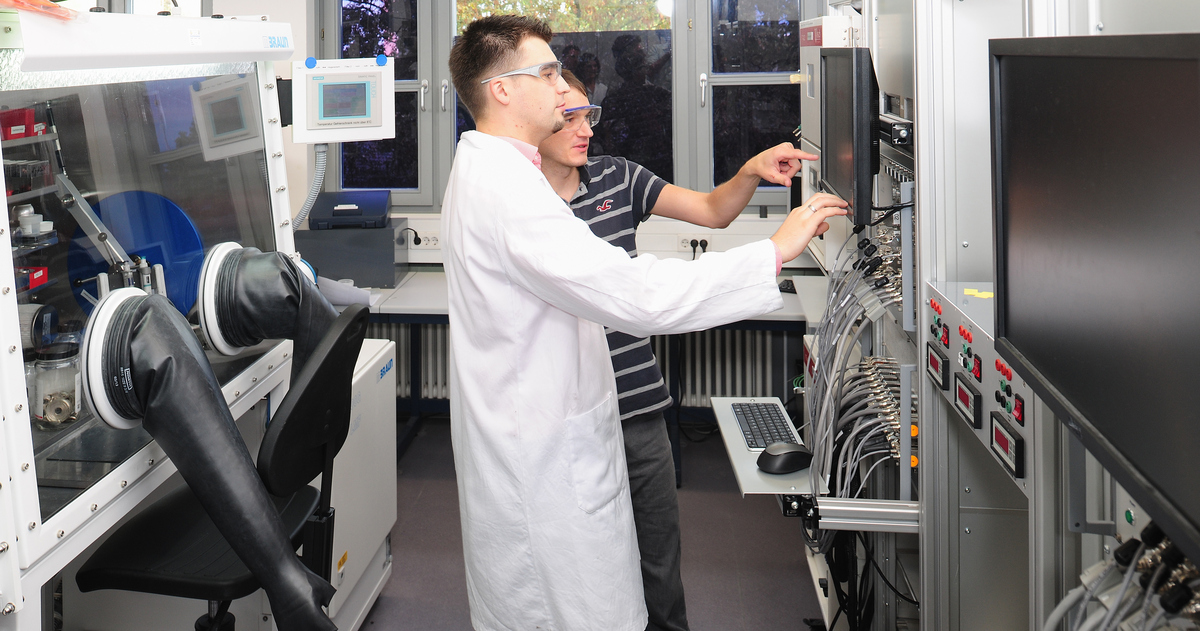Projects in the area of Lithium-Ion Batteries
Batteries – Cell Characterization and Modeling
The group´s research is related to electrochemical and microstructural characterization and modeling of batteries on different scales.
We analyze the physicochemical processes taking place in the cell and correlate them to microstructural features, design parameters and the operating state. The investigations include current lithium-ion cells with liquid electrolyte and future solid state batteries (ASSB: All Solid State Batteries).
For a deconvolution of electrochemical processes occurring in the cells, quasi-stationary (OCV characteristics, C rate and cycle tests) and dynamic measurement methods (impedance spectroscopy in the frequency and time domain, NFRA) are applied. Structural (XRD), microscopic (SEM, light and laser microscopy) and tomographic methods (FIB-REM, µCT) are available for in detail analyses. The development of measurement and evaluation methods is an important part of the experimental work.
Modeling of cell behavior is performed on different levels - from spatially resolved 3D simulation of porous electrodes to homogenized 0D equivalent circuit models and 3D FEM models for large-scale cells. A focus in modeling is on experimentally based parameterization. Impedance analysis via the distribution function of relaxation times and physicochemical equivalent circuit models provides model parameters for transport processes and electrochemical reactions. Validation of the models is performed via complementary measurements.
Simulations provide information on non-measurable state variables in the cell, enable prediction of the behavior of new microstructure and material designs as well as the possibility of virtual integration of such features into a cell.
Contact: Dr.-Ing. André Weber

